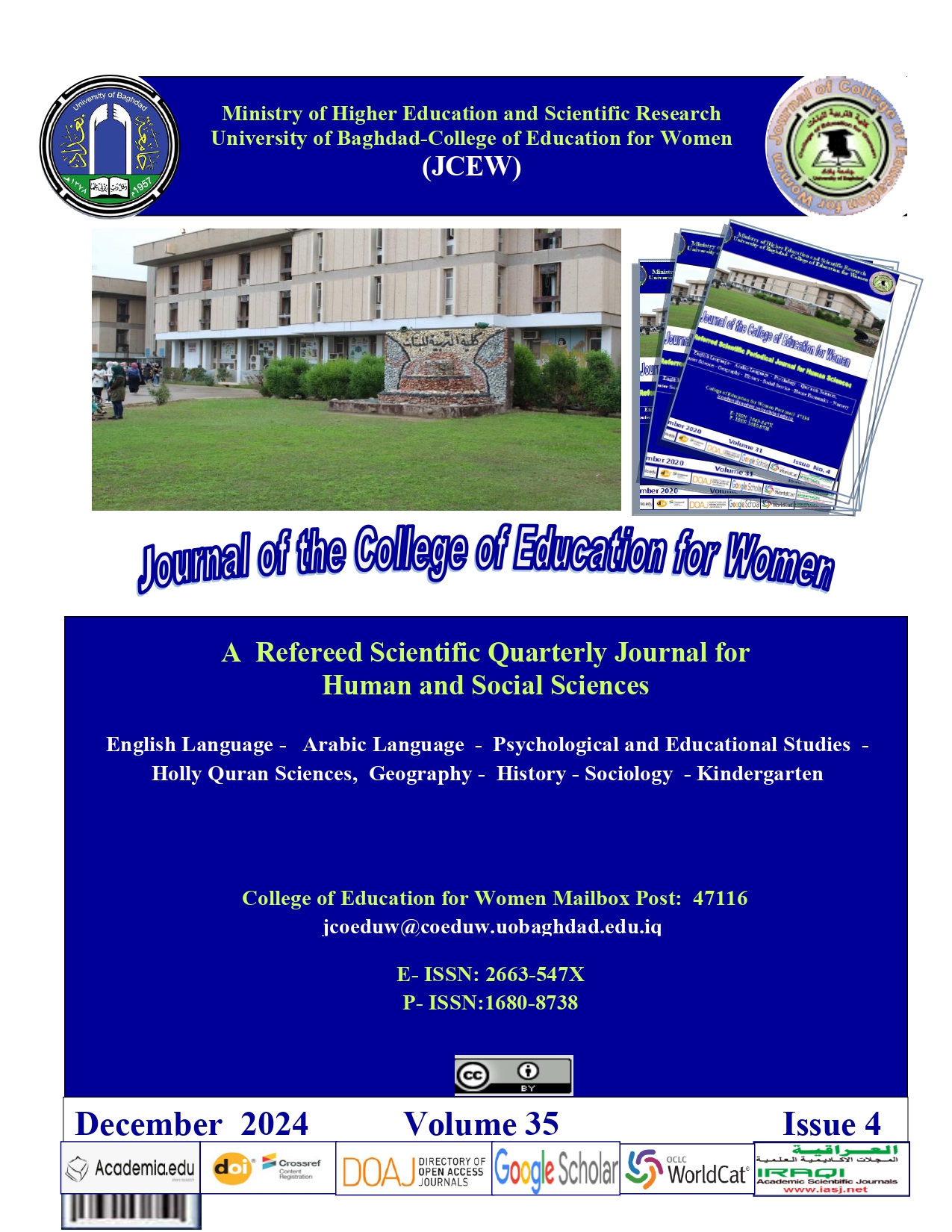The Dystopian World of Lanford Wilson’s Angles Fall: A Foucualdian Reading
DOI:
https://doi.org/10.36231/coedw.v35i4.1775Keywords:
Angels Fall, Dystopian World, Heterotopia, Power vs. Resistance, Hold-up play, Nuclear AgeAbstract
This paper examines Lanford Wilson’s Angels Fall as a dystopian society that highlights the marginalized status of indigenous people, specifically Native Americans living near nuclear mines. The authorities demonstrate a disregard for their lives and health due to a perceived sense of superiority over these Native individuals. Wilson aims to depict a political, technological, and ecological dystopia that anticipates a future where the impending threat of a nuclear catastrophe looms over humanity. The study examines Angels Fall through the lens of Foucauldian notions such as heterotopia, power vs. resistance, and madness, as reflected by Lanford Wilson. In this play, the power struggle is depicted by Wilson, especially through the characters of Father Doherty and Don Tabah to support Foucault’s theory that emphasizes the fact that where there is power, there will be resistance of some kind, which is investigated through this research.
Downloads
Published
Issue
Section
License
![]()
All articles published in Journal of College of Education for Women are licensed under a Creative Commons Attribution 4.0 International License.











